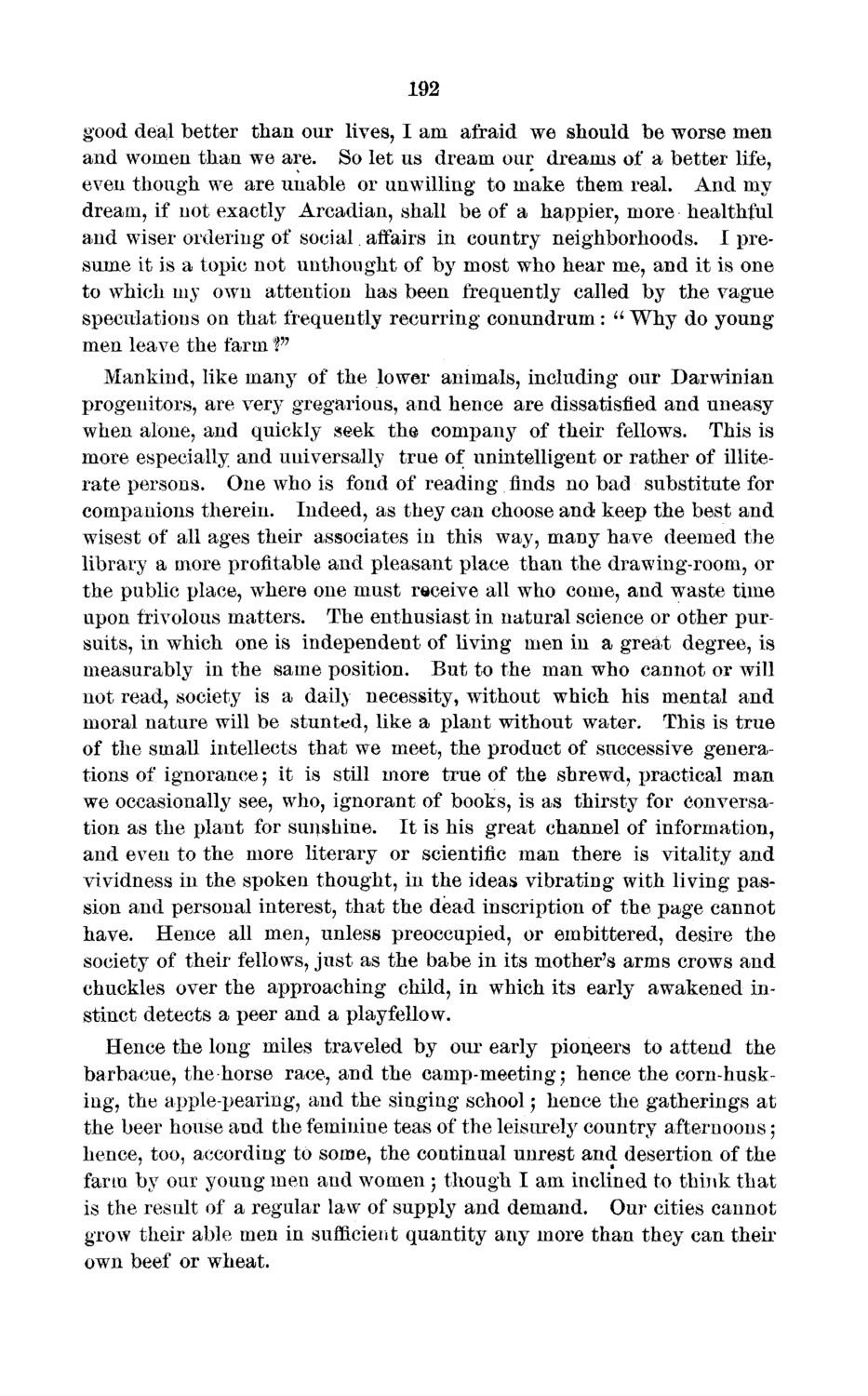| |
| |
Caption: Board of Trustees Minutes - 1873
This is a reduced-resolution page image for fast online browsing.

EXTRACTED TEXT FROM PAGE:
192 good deal better than our lives, I am afraid we should be worse men and women than we are. So let us dream our dreams of a better life, even though we are unable or unwilling to make them real. And my dream, if not exactly Arcadian, shall be of a happier, more healthful and wiser ordering of social. affairs in country neighborhoods. I presume it is a topic not unthought of by most who hear me, and it is one to which my own attention has been frequently called by the vague speculations on that frequently recurring conundrum: " Why do young men leave the farm V1 Mankind, like many of the lower animals, including our Darwinian progenitors, are very gregarious, and hence are dissatisfied and uneasy when alone, and quickly seek the company of their fellows. This is more especially and universally true of unintelligent or rather of illiterate persons. One who is fond of reading finds no bad substitute for companions therein. Indeed, as they can choose and keep the best and wisest of all ages their associates in this way, many have deemed the library a more profitable and pleasant place than the drawing-room, or the public place, where one must receive all who come, and waste time upon frivolous matters. The enthusiast in natural science or other pursuits, in which one is independent of living men in a great degree, is measurably in the same position. But to the man who cannot or will not read, society is a daily necessity, without which his mental and moral nature will be stunted, like a plant without water. This is true of the small intellects that we meet, the product of successive generations of ignorance; it is still more true of the shrewd, practical man we occasionally see, who, ignorant of books, is as thirsty for conversation as the plant for sunshine. It is his great channel of information, and even to the more literary or scientific man there is vitality and vividness in the spoken thought, in the ideas vibrating with living passion and personal interest, that the dead inscription of the page cannot have. Hence all men, unless preoccupied, or embittered, desire the society of their fellows, just as the babe in its mother's arms crows and chuckles over the approaching child, in which its early awakened instinct detects a peer and a playfellow. Hence the long miles traveled by our early pioneers to attend the barbacue, the horse race, and the camp-meeting $ hence the corn-husking, the apple-pearing, and the singing school 5 hence the gatherings at the beer house and the feminine teas of the leisurely country afternoons; hence, too, according to some, the continual unrest and desertion of the farm by our young men and women 5 though I am inclined to think that is the result of a regular law of supply and demand. Our cities cannot grow their able men in sufficient quantity any more than they can their own beef or wheat.
| |